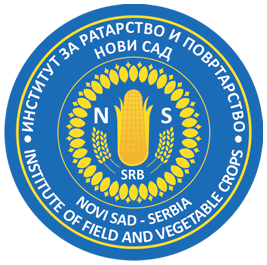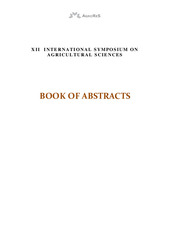Приказ основних података о документу
Nitrogen fertilization and hybrid interactions along climatic conditions determine maize yield in calcareous soil
| dc.creator | Đalović, Ivica | |
| dc.creator | Paunović, Aleksandar | |
| dc.date.accessioned | 2024-02-08T12:04:22Z | |
| dc.date.available | 2024-02-08T12:04:22Z | |
| dc.date.issued | 2023 | |
| dc.identifier.isbn | 978-99938-93-88-2 | |
| dc.identifier.uri | http://fiver.ifvcns.rs/handle/123456789/4257 | |
| dc.description.abstract | Maize (Zea mays L.) is the most important cereal worldwide. Climatic conditions significantly affect the maize productivity. Identifying the contributions of climate factors and fertilization to maize yield is significant for the assessment of climate change impacts on maize production. This two-year field study investigated the effects of four N levels (T1: 0, T2: 60, T3: 120, and T4: 150 kg N ha−1) on the grain yield of four divergent maize cultivars (NS-4023, NS-640, NS-6010 and NS-6030). The results showed that maize yield were significantly affected by year (Y), genotype (G), N fertilization (N), and Y × G × N interaction. | sr |
| dc.language.iso | en | sr |
| dc.publisher | Banja Luka : University of Banja Luka, Faculty of Agriculture | sr |
| dc.rights | openAccess | sr |
| dc.rights.uri | https://creativecommons.org/licenses/by/4.0/ | |
| dc.source | Book of Abstracts, 12th International Symposium on Agricultural Sciences "AgroReS 2023", 24-26 May 2023, Trebinje, Bosnia and Herzegovina | sr |
| dc.subject | maize | sr |
| dc.subject | fertilization | sr |
| dc.subject | climatic conditions | sr |
| dc.subject | calcareous soils | sr |
| dc.subject | yield | sr |
| dc.title | Nitrogen fertilization and hybrid interactions along climatic conditions determine maize yield in calcareous soil | sr |
| dc.type | conferenceObject | sr |
| dc.rights.license | BY | sr |
| dc.citation.epage | 74 | |
| dc.citation.spage | 74 | |
| dc.identifier.fulltext | http://fiver.ifvcns.rs/bitstream/id/11429/djalovic.pdf | |
| dc.identifier.rcub | https://hdl.handle.net/21.15107/rcub_fiver_4257 | |
| dc.type.version | publishedVersion | sr |


